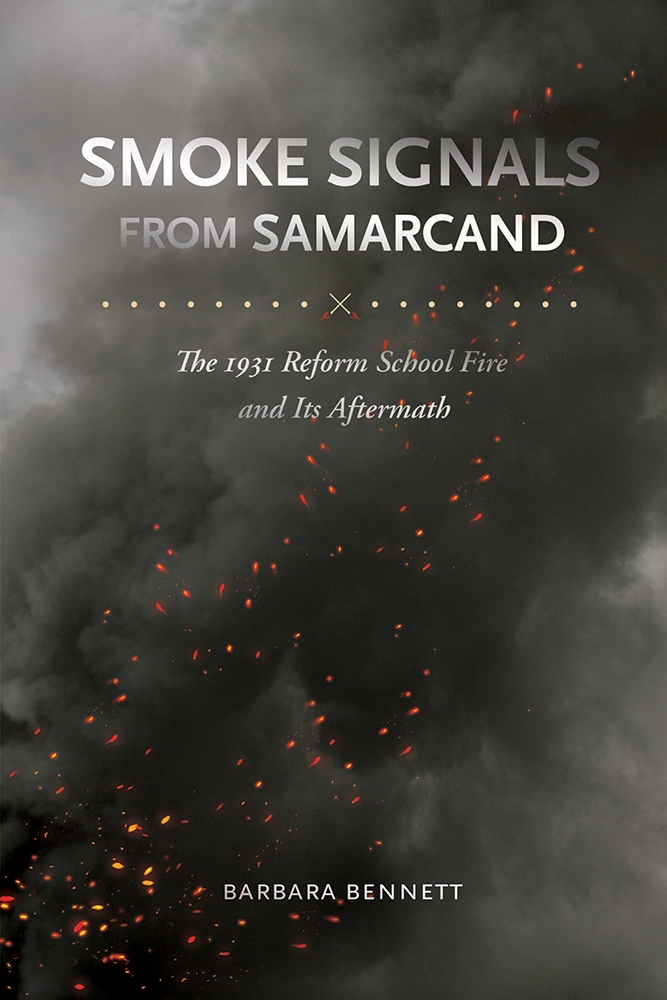Black History Month Sale: 40% off all books, plus FREE SHIPPING on all U.S. orders over $50 | Use code JBHM26

Size: 6 x 9
Pages: 136
Illustrations: 15 halftones
Barbara Bennett
The inclusion of this book in the Open Carolina collection is made possible by the generous funding of
"Barbara Bennett effectively recounts this largely forgotten story of (rightly) rebellious girls held in North Carolina's Samarcand Reform School in the early 1930s. Enduring beatings and under threats of sterilization, youngsters set fire to this institution in protest. Bennett's painstaking research brings to life Nell Battle Lewis, the attorney charged with saving the Samarcand Sixteen from death. The story, however, gives us few such heroes."—Linda Wagner-Martin, Frank Borden Hanes Professor of English & Comparative Literature, University of North Carolina, Chapel Hill
"Meticulously researched and beautifully written, Barbara Bennett's Smoke Signals from Samarcand excavates a conveniently forgotten layer of North Carolina (and more broadly American) history—the incarceration of poor white girls in industrial or reform 'schools,' where they were further victimized by whippings, solitary confinement, and sometimes sterilization. Set during the eugenics movement, this riveting history of the 'Samarcand Sixteen,' who set fire to their school in a futile attempt to free themselves, reads like a novel. From her vivid descriptions of the girls themselves to the astute character study of their heroic lawyer Nell Battle Lewis, Bennett dives straight into the heart of history. A remarkable story of the lengths some will go to in controlling women's bodies, a prescient story for our own troubled times. I couldn't put it down."—Minrose Gwin, author of Promise
"This slim book elegantly recounts the 1931 trial of sixteen white, teenaged, female inmates accused of setting fire to the Samarcand Manor Training School for Delinquent Girls in rural North Carolina... Bennett, an English professor at North Carolina State University, tells the story beautifully. Literary flourishes decorate the pages."—Journal of American History
"Barbara Bennett's research entices the reader to pursue this work as a story that needed to be told... Read the stories and remember the power we gain from the knowledge of the uses of history. Never again, we say."—Southeastern Librarian
Copyright 2026
Website By Morweb.org